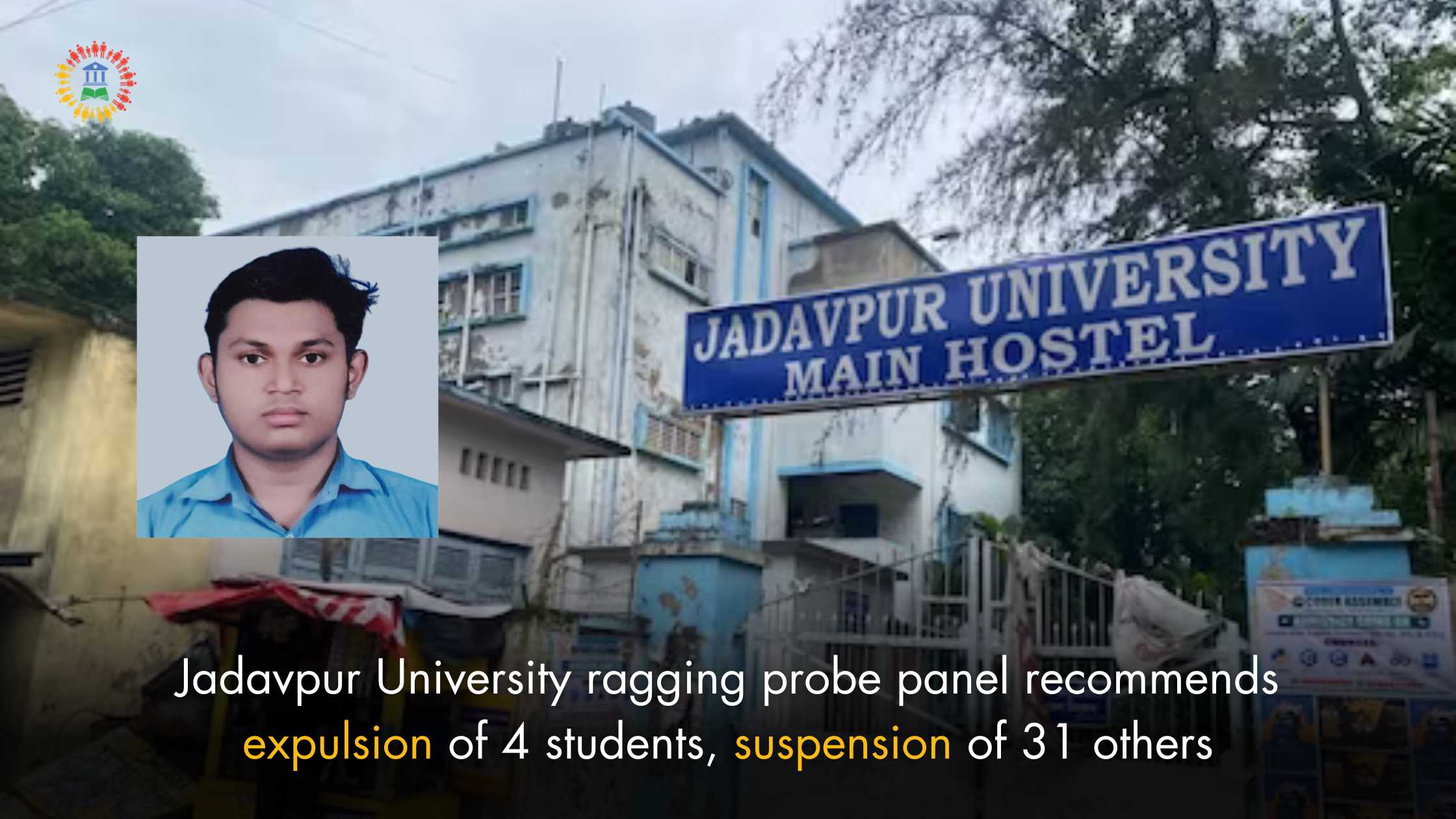
The ragging probe panel set up by Kolkata’s Jadavpur University (JU) to investigate the death of a 17-year-old student who fell from the boys’ main hostel on August 10, 2023, has submitted its report with several recommendations. The panel confirmed that the student, Swapnadip Kundu, a first-year Bengali Honours student, was subjected to ragging by four senior students, who have been recommended for expulsion. The panel also suggested the suspension of at least 31 students for either ragging other juniors or for indirectly supporting the hostel’s “ragging culture”. The periods of suspension vary between one and four semesters.
Timeline of the incident
According to the police, Kundu was subjected to a distressing episode of ragging lasting approximately 120 minutes on August 9, 2023. Evidence shows that Kundu was subjected to obscene behaviour and confined in a hostel room along with several students, including former mathematics student Sourav Chowdhury. Chowdhury is one of the four students recommended for expulsion by the panel. The other three are Anirban Das, a third-year mechanical engineering student, Suman Das, a second-year civil engineering student, and Soumya Chakraborty, a second-year electrical engineering student.
Kundu reportedly fell from the second-floor balcony of his hostel around 11 pm on August 9. He was rushed to a hospital where he succumbed to his injuries the next day. His family alleged that he was being ragged on campus and that he had told his mother that he was very scared and had a lot to tell her. His uncle also said that he was not allotted his own room at the hostel and was staying at a friend’s room.
History of ragging in JU
Ragging is not a new phenomenon in JU. In fact, it has been a persistent issue that has been ignored or tolerated by the authorities for a long time. In 2015, a first-year engineering student had filed an FIR against six seniors for physically and mentally torturing him in the name of ragging. In 2016, another first-year engineering student had lodged a complaint with the university authorities alleging that he was ragged and beaten up by some seniors at his hostel. In both cases, the university had set up probe panels but no action was taken against the accused students.
Ragging is also seen as a way of asserting dominance and superiority by the seniors over their juniors or freshers. Some experts have argued that ragging is an enactment of patriarchy, which is a violent structure that constantly renews its acceptability in society by presenting itself as a ‘loving and caring’ one. Ragging is justified by the claim that it helps to create an atmosphere of friendship amongst the boarders and to build their character and toughness.
Other recommendations by the panel
The panel also called for the eviction of all passed-out or former students or illegal occupants from the hostel rooms on campus within 24 hours. It also recommended disciplinary action against the main hostel’s superintendent for dereliction of duty. The panel also found administrative lapses and negligence by some senior officials, including the dean of students, the registrar and a section of teachers, for not paying much heed to ragging complaints in the past. It also observed some lapses in functioning of the executive council in dealing with past ragging cases.
The panel also urged the university to take measures for prevention of ragging, such as declaring its intent publicly to prevent ragging and requiring students to sign an undertaking that they will not engage in ragging activities. It also suggested that anti-ragging committees and squads should be formed and made functional at all levels. It also recommended that counselling sessions should be organised for both freshers and seniors to create awareness about the ill-effects of ragging.
The panel’s report has been submitted to the vice-chancellor of JU, who will take the final decision on the recommendations. The report has also been sent to the state higher education department and the University Grants Commission (UGC). The UGC has specific guidelines on ragging and has made it mandatory for all educational institutions to curb this menace.
The death of Kundu has sparked outrage and protests among students, teachers and civil society groups who have demanded justice for him and an end to ragging in JU. The case has also highlighted the need for stricter implementation of anti-ragging laws and policies in educational institutions across India. Ragging is not only a violation of human rights but also a serious threat to mental health and academic performance of students. It is high time that ragging is eradicated from the campuses and that students are provided with a safe and conducive environment for learning and growth.